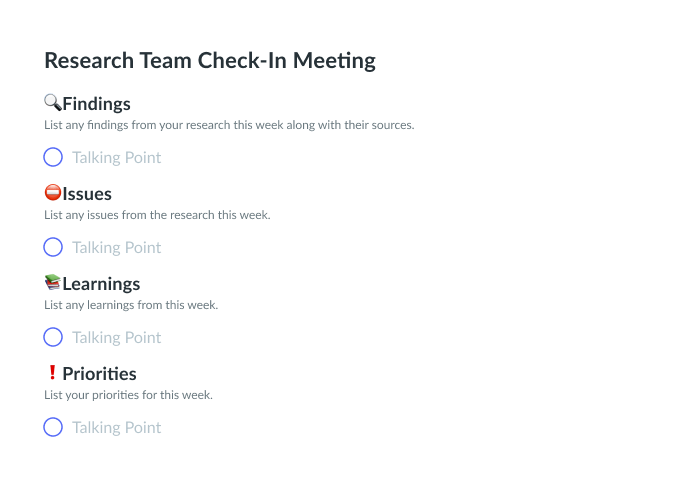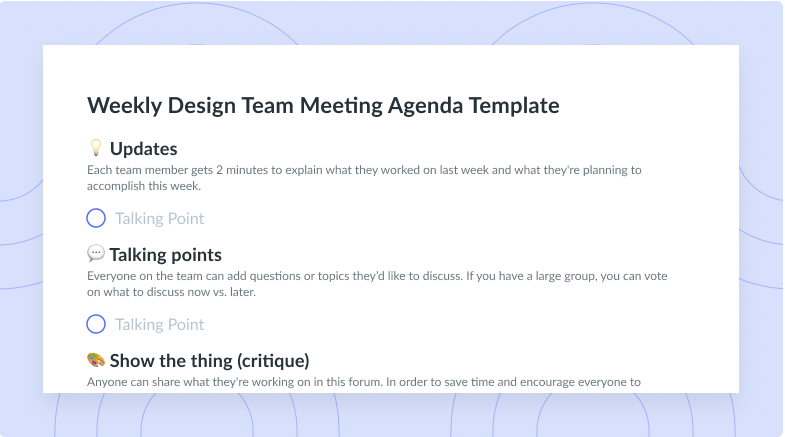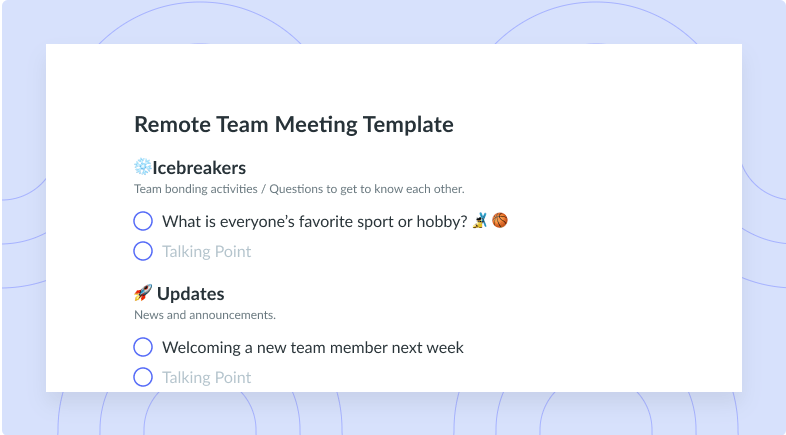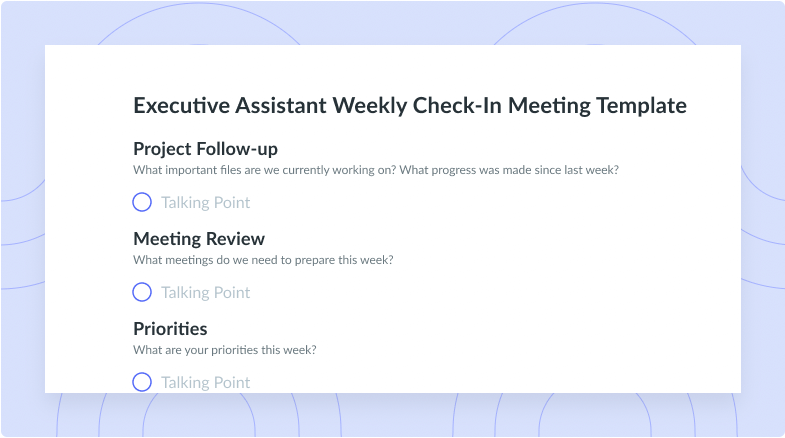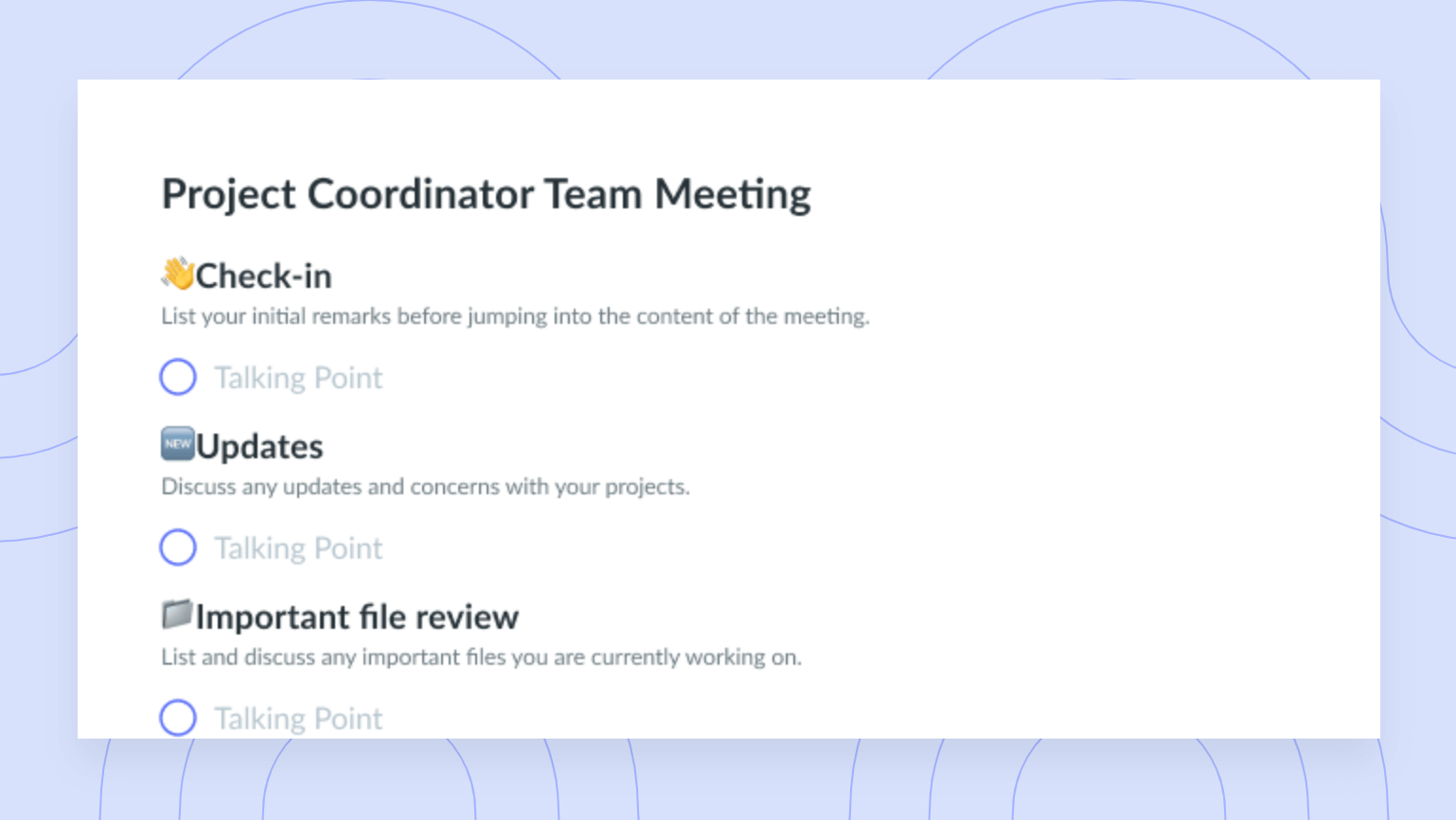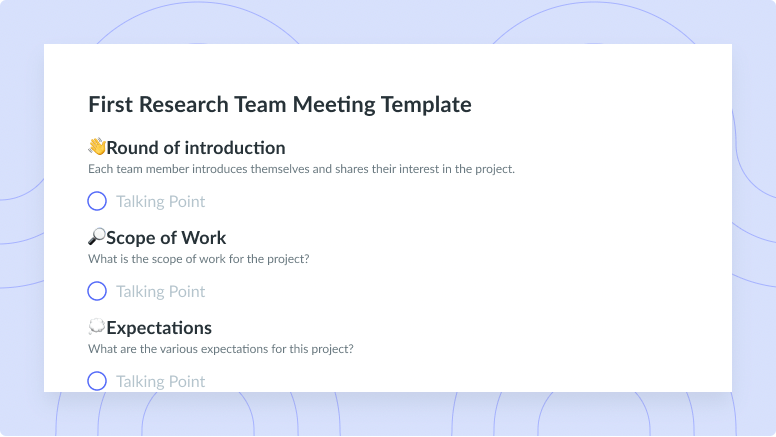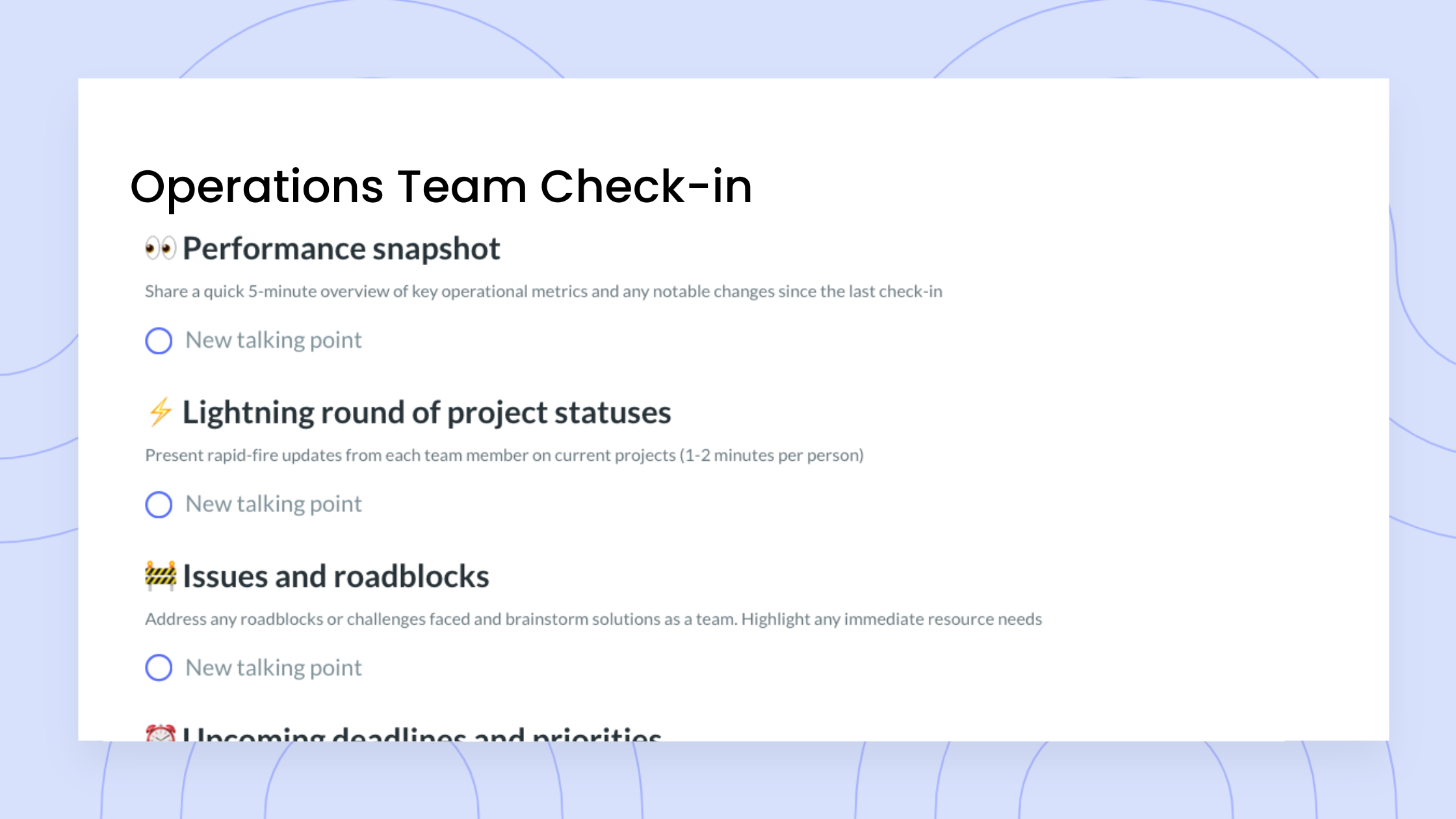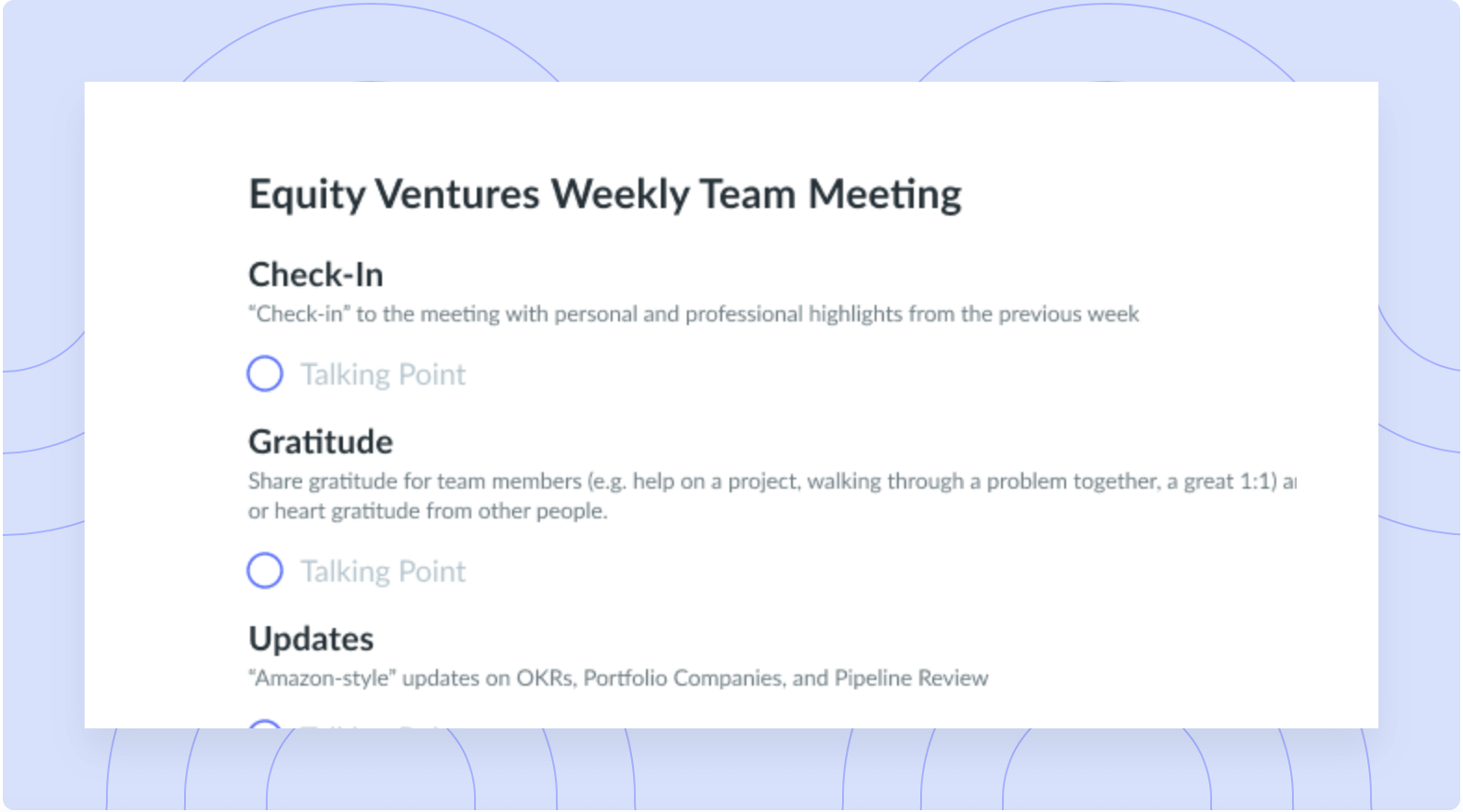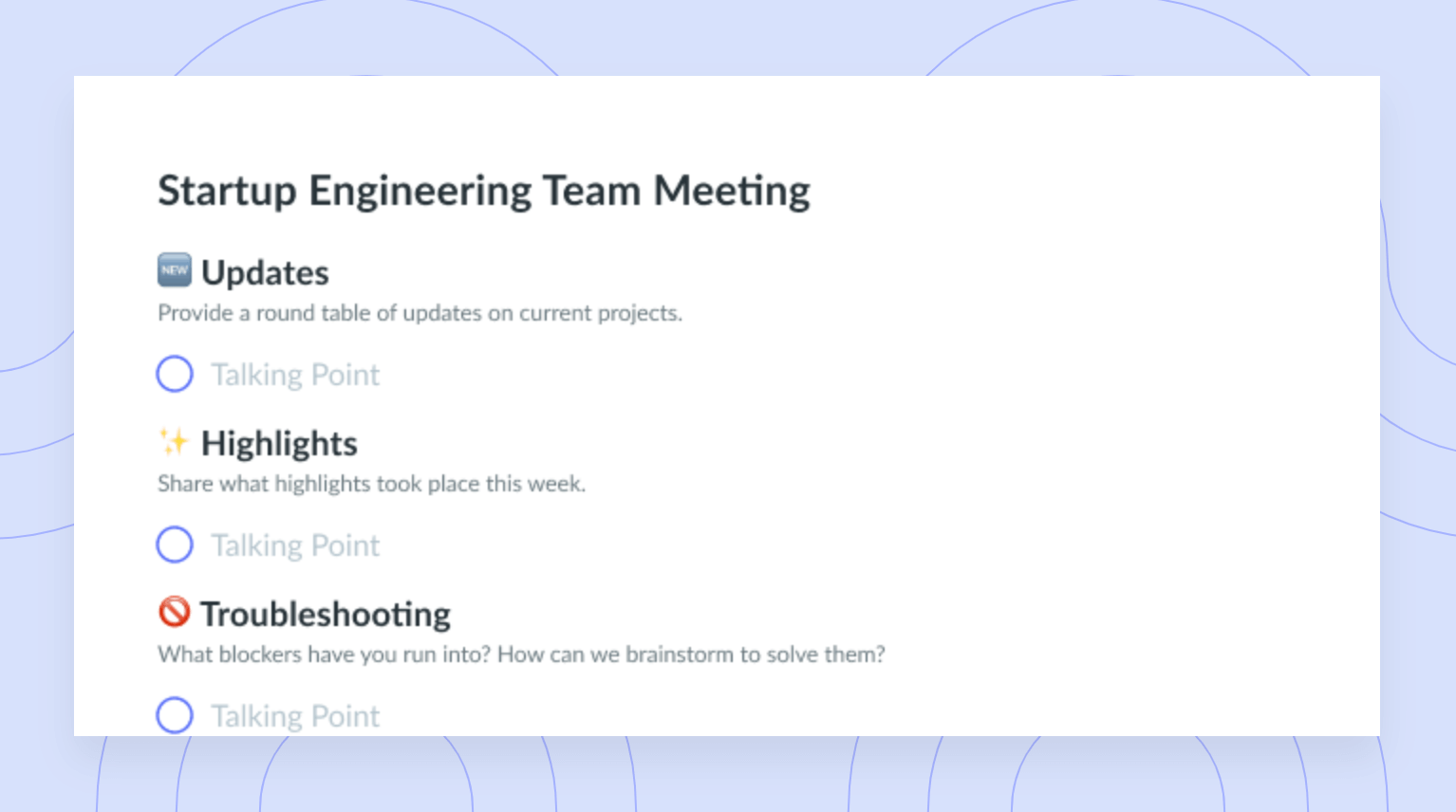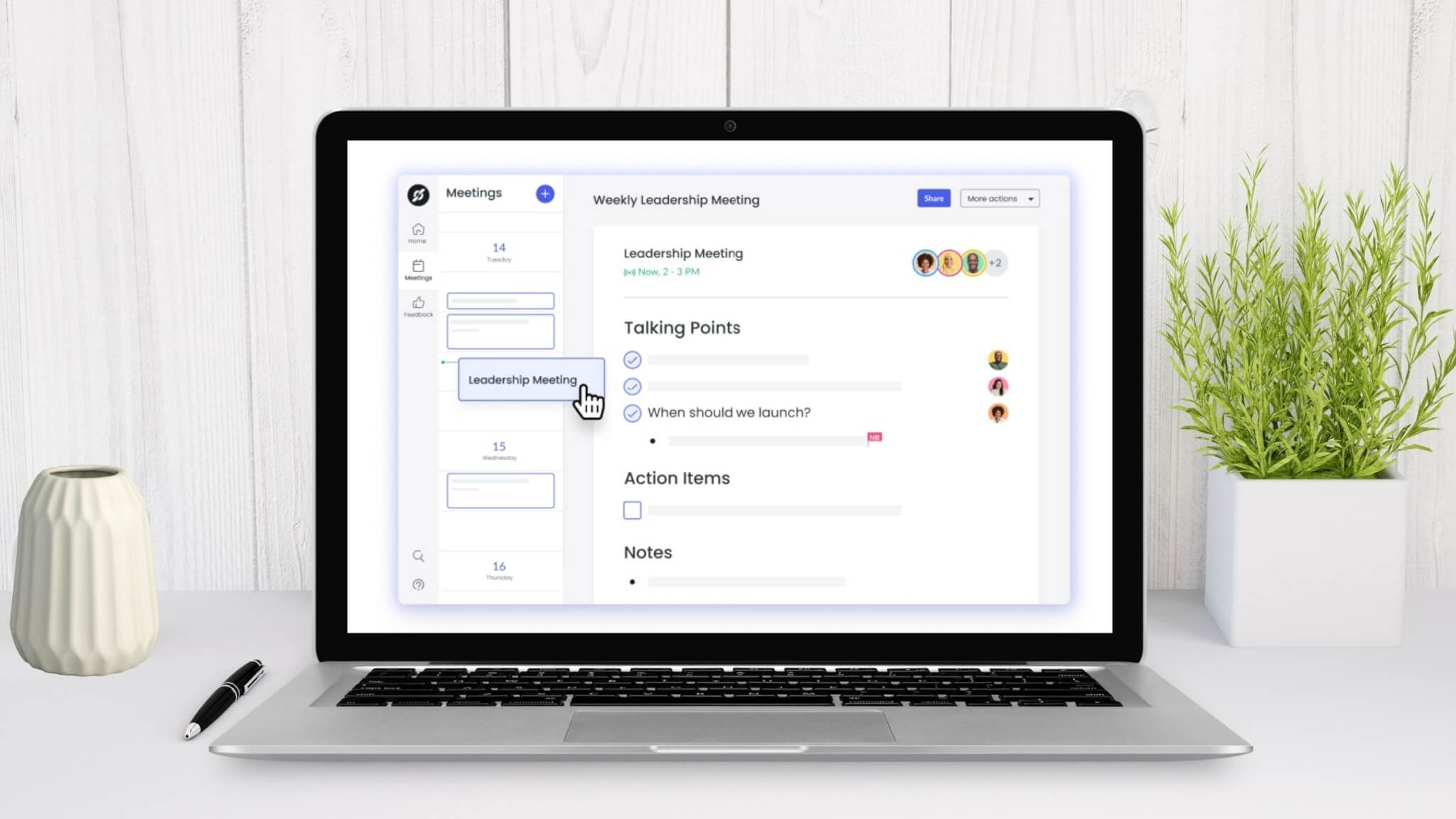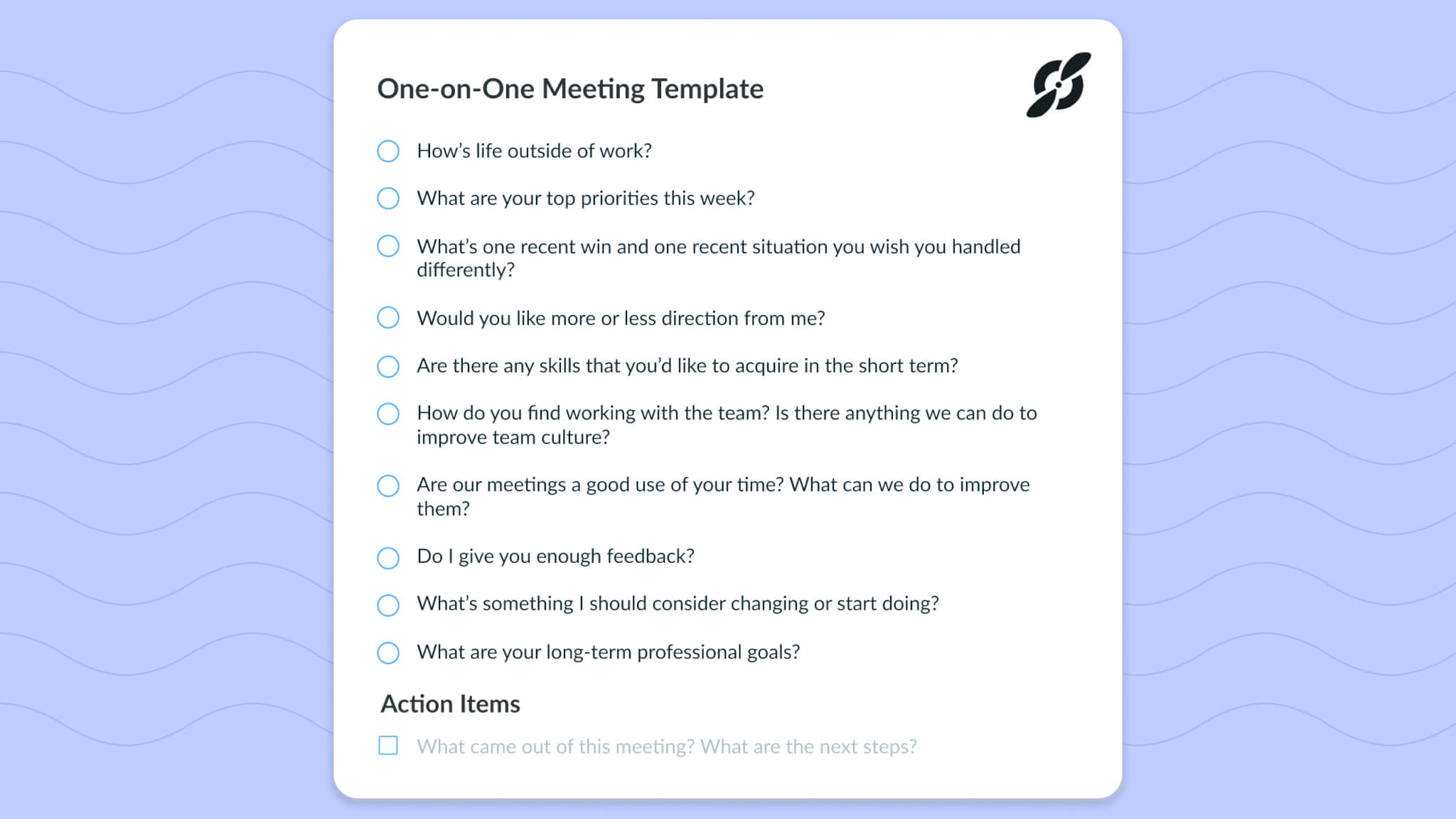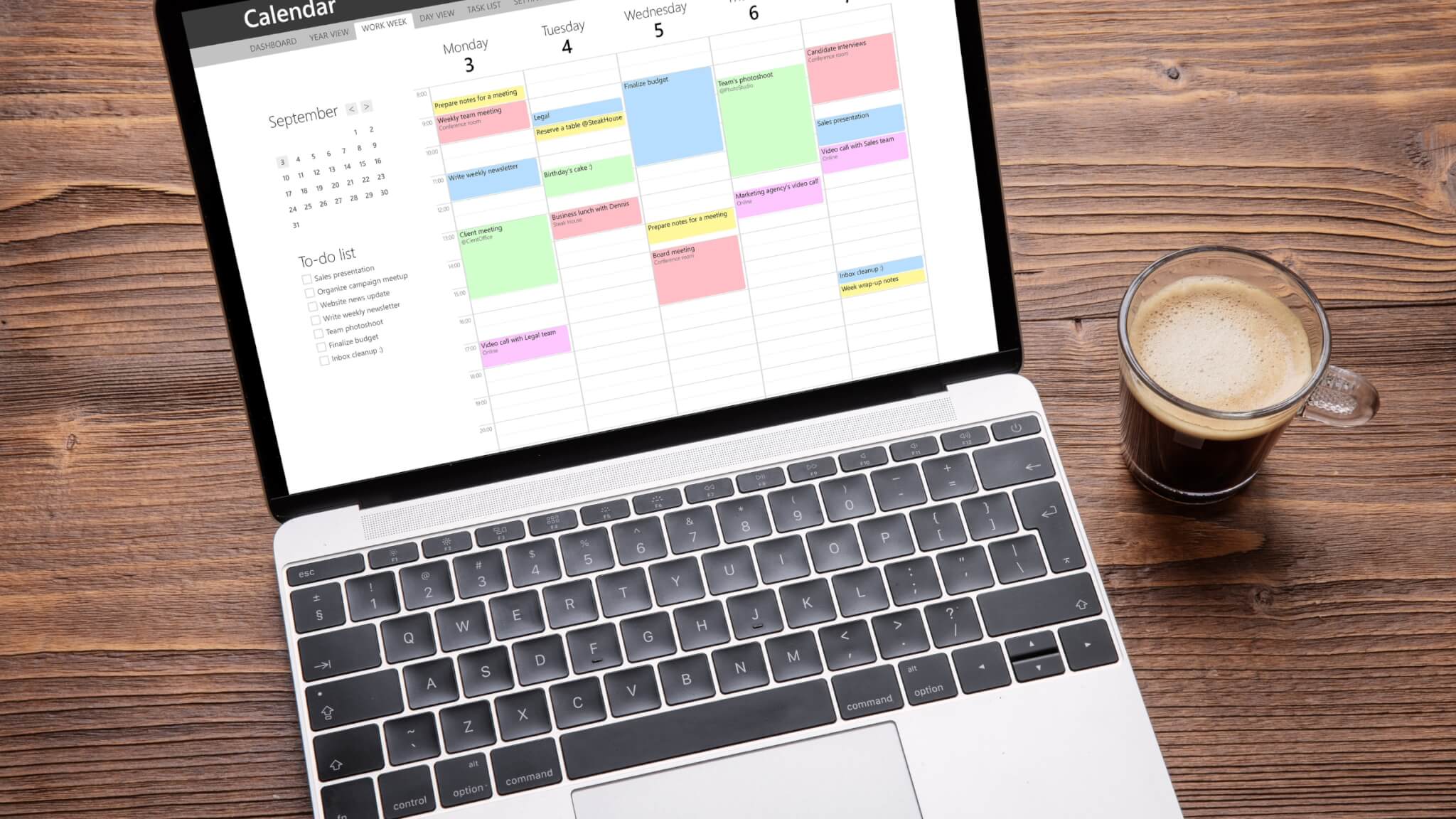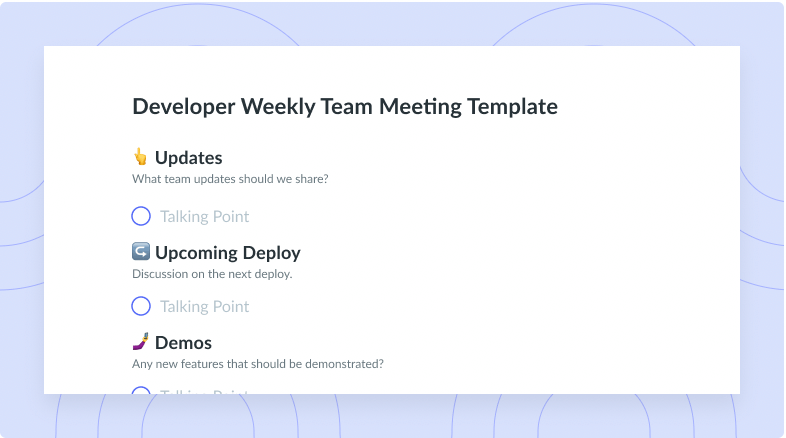
Research Team Check-In Meeting Template
Get this templateUse this meeting template for a productive check-in with your research team.


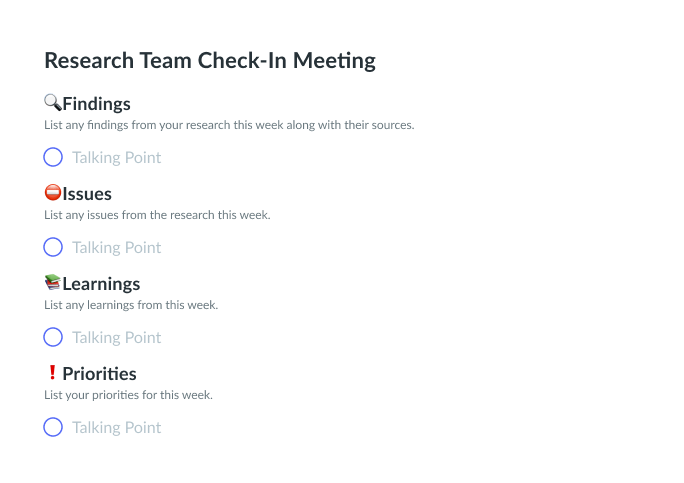

Research Team Check-In Meeting Template
“Understanding human needs is half the job of meeting them.”- Adlai E Jr Stevenson
What are Research Team Check-In Meetings?
Whether you want to make a new product or service or introduce the new product to your consumers, the research helps you refine the product and come up with ways to market it or even know how it will solve your customers’ problems. That’s essentially what your business needs to do, give solutions to the consumer, and you won’t know what to develop if you haven’t done proper research.
The Purpose of Research Team Check-In Meetings
The purpose of these meetings is to align the research team and check in on their progress. These findings are then shared with the organization at large by senior management in an attempt to inform additional departments of the research team’s progress.
Why are Research Team Check-In Meetings Important?
Research and development teams are crucial elements of every organization, so it’s important to align the team by hosting research team check-in meetings backed by comprehensive research team check-in meeting agendas.
Most companies assign the research to a specific team, which will undertake the task as the management requires. As the research team’s leader, it’s your job to ensure everyone is on board with the project, and research team meetings are super important.
How to Prepare for Research Team Check-In Meetings
The best way to prepare for these meetings is by creating a research team check-in meeting agenda. A comprehensive meeting agenda composed of meeting specifics, stakeholder insights, talking points, and contributions by research team members will ensure everyone is prepared for and ready to engage in the meeting. It’s also best to keep the discussion related to the project at hand to create alignment and avoid confusion.
Through the meetings, you will know how well or poorly the research is coming up, what you need to rectify and the current findings of the project. Depending on the enormity of the research project, you can decide to hold the meetings at a frequency that works for everyone involved.
These meetings should occur as needed and the length should be determined based on the meeting agenda. Creating a detailed agenda that outlines key talking points will help determine how long the meeting should last.
Who is Involved in Research Team Check-In Meetings?
All the team members involved with the research must attend the meeting, and a stakeholder and a couple of personnel from the management can join them too. That way, the upper management knows the research progress and how to move forward.
How to Use a Research Team Check-In Meeting Template
Leveraging a research team check-in meeting template is easy and only requires a few simple steps. First, make sure to source a solid template. From there, you can get to work on filling out the template and adding talking points relevant to the project at hand. Remember, circulating the meeting agenda before the meeting will ensure everyone has the opportunity to add key talking points. In addition, doing so gives the entire research team the opportunity to prepare before the meeting.
To help organizations like yours hold efficient project implementation checkpoint meetings, we, the fellows at Fellow, came up with this easy-to-use Research Team Check-In Meeting Template. The template has four parts, findings, issues, learnings and priorities, all of which should be part of the agenda.
Sometimes meetings can be tedious and considering that some of these are weekly team meetings, it’s essential to follow some of these practices to ensure an effective meeting. Planning is vital despite the check-in meetings being short.
- Always stick to the meeting agenda. This will keep the meeting short, as you will only discuss the most critical points outlined in the agenda items and save time.
- Finish with concise takeaways. When doing research, there is a lot of information to sift through; sometimes, it can get lost within the meeting. Strive to ensure that everyone leaves the meeting with a clear picture of what they should do.
- Make sure the team feel like the meeting was helpful. The objective of the meeting is to know how the research is coming up and refine the action items to fit the bigger picture. Your feedback is essential to your team, as it helps them fix mistakes and shows you appreciate their research work.
Your meeting agenda will also come in handy post-meeting. If anyone happens to miss the meeting, they’ll be able to reference the meeting agenda to get up to speed. It may also come in handy for following up on deliverables and future action items.
What’s inside this Research Team Check-In Meeting Template:
What’s inside a research team check-in meeting template largely depends on the project at hand. Whether your team is developing a new product, diving into user stories, or researching a new form of software, your research team check-in meeting agenda will ensure your team is able to proceed with ease. Talking points may include progress updates, conversations regarding roadblocks, or updates regarding research findings.
Check-in meetings need to be efficient and to achieve that, use this meeting template for a productive check-in with your research team. The template is easy to use and has four agenda sections that conveniently cover the bases for effective team meetings.
1 🔍 Findings
“Research means that you don’t know, but are willing to find out” – Charles F. Kettering
This is where the team members list the findings for the week and the respective sources. By discussing the results, you’ll know whether the research project is on track or if there are parts that are lagging. The findings also paint a picture of whether you should adjust the project by putting more time on one more thing than the other, refining the plan in the process.
2 ⛔️ Issues
List any issues from the research this week.
During their research during the week, did the team face any issues? If so, what were they? Once you have established the problems they faced, you can quickly find ways to solve them, especially if they massively hinder the research. Some might be solved promptly, while others might take some time, but the point is that the problem has been noticed and is getting solved.
3 📚Learnings
List any learnings from this week.
Is there anything the team learned during the week while doing the research? If there is, you should list it and apply the knowledge in the subsequent weeks. That will help keep the research project running smoothly.
4 ❗️Priorities
List your priorities for this week.
Once you have discussed all the findings, issues and lessons learnt during that research week, it’s time to set the coming week’s priorities. What do you need to achieve? What’s every member’s task for the week? Which research point should be handled first? Deliberating on the priorities ensures that everyone knows what they need to do within the week.
Whether you’re holding the research check-in meeting daily or every week, the task shouldn’t be daunting, and that’s where our research meeting agenda comes in. At Fellow, we love meetings and strive to make them coherent. Research management is essential for any organization, and with our project research team check-on meeting template, you and your team will be able to know how much you’ve done and what needs to be changed every week.

